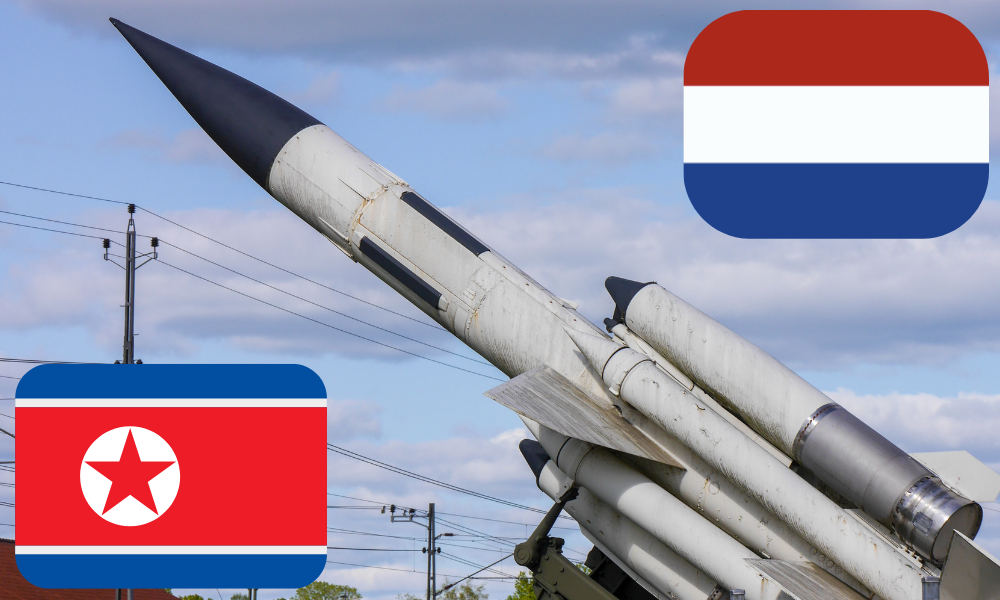North Korea’s Missile Launch Escalates Tensions with Russia

North Korea’s Missile Launch: A Provocative Move
In a significant escalation of international tensions, North Korea has launched a long-range missile, alarming global powers and heightening concerns about its military ambitions. The missile test, conducted on October 30, 2024, has drawn widespread condemnation and renewed calls for stringent sanctions from the United States and its allies.
This provocative action comes at a time when North Korea is also reportedly sending military support to Russia, exacerbating the already strained diplomatic relations between Pyongyang and Washington. The dual developments not only threaten stability in the Korean Peninsula but also have implications for the broader geopolitical landscape, particularly in the context of the ongoing conflict in Ukraine.
Details of the Missile Launch
The missile, believed to be an intercontinental ballistic missile (ICBM), was launched from a site near Pyongyang and reportedly traveled several thousand kilometers before landing in the Sea of Japan. The North Korean state media described the launch as a demonstration of the country’s “overwhelming military might,” asserting that it is necessary for national defense against perceived threats from the United States and South Korea.
U.S. officials have expressed deep concern over this latest demonstration of North Korea’s missile capabilities. Secretary of State Antony Blinken condemned the launch, stating that it “violates multiple United Nations Security Council resolutions” and poses a serious threat to regional and global security
Military Support for Russia
Compounding the situation is North Korea’s reported military support to Russia amid its ongoing conflict with Ukraine. Reports indicate that North Korea has begun supplying artillery shells and other military equipment to Moscow, further complicating the dynamics of international relations Voice of America
This military cooperation raises alarms among U.S. and allied officials, who view it as a troubling sign of emerging ties between the two nations, potentially reshaping the balance of power in the region. North Korea’s support for Russia could embolden Moscow, leading to prolonged conflict in Ukraine and increased aggression in other areas Voice of America,
Impact on Diplomatic Relations
The dual actions of North Korea—the missile launch and military support for Russia—pose significant challenges for U.S. diplomacy. With ongoing tensions surrounding North Korea’s nuclear ambitions, the Biden administration has reaffirmed its commitment to diplomatic solutions but faces mounting pressure to take a firmer stance WIRED.
Regional Reactions
Reactions from regional players have been swift. South Korea’s President Yoon Suk-yeol condemned the missile launch, calling it a “serious provocation” that undermines peace and stability in the region. Japan has also expressed its condemnation, with Prime Minister Fumio Kishida pledging to enhance Japan’s defense capabilities in response to North Korea’s escalating threats.
Analysts suggest that this series of provocations could lead to a renewed arms race in East Asia, as neighboring countries bolster their military capabilities in anticipation of further threats from Pyongyang’sWIRED Voice of America.
The Bigger Picture: Global Implications
The situation surrounding North Korea is not merely a regional issue; it has far-reaching implications for global security. The collaboration between North Korea and Russia may embolden other authoritarian regimes, leading to increased tensions in areas already fraught with instability, such as the South China Sea and Eastern Europe Voice of America.
Moreover, as the U.S. navigates its foreign policy priorities amid growing tensions with China, the need to address North Korea’s actions becomes increasingly critical. The Biden administration is tasked with balancing multiple geopolitical challenges while maintaining pressure on North Korea to abandon its nuclear ambitions.
